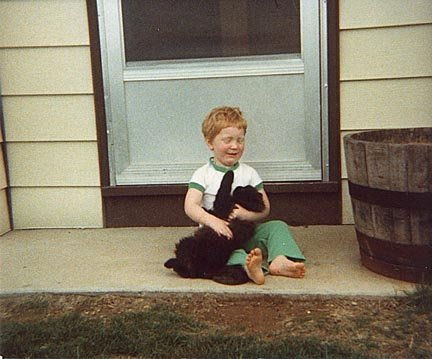The Good Enough Parent
- erinmorrismiller
- May 13, 2025
- 3 min read
Erin Morris Miller, PhD
(This blog was previously posted on the discontinued site thegiftedscholar.com)
I am not a perfect parent. I was raised by imperfect parents. That is the nature of life. As a young child I hated having imperfect parents. No child appreciates their parents’ foibles, but there is a particular flavor to this problem when you are a gifted kid. It is a challenge to parent a child who can remember so much. While most kids are only able to recall important events of their life, remembering a promise your parents made when visiting a certain store five years ago is no big deal for the gifted child. Remembering your parents’ every misstep is a bummer. I was an emotional, tightly-wound wild kitten of a child. But my parents rolled with it.

Most parents worry about whether they are doing the right thing when raising their children. Except that there is no set right thing. Now there are definitely some wrong things: neglect, cruelty, and the like. But an interesting fact is that for children to be happy and successful (however one might measure success) parents just need to be good enough. Perfection is not necessary. The National Association for Gifted Children produced chapter-length booklets as part of what was called the NAGC Select series, one of which was Early Childhood Gifted Education: Fostering Talent Development by Nancy Hertzog and Ann Gadzikowski. It has an unfortunate low review on Amazon.com that reads, “…nothing particularly informative or illuminating. I’m a parent and don’t feel like I got anything out of it other than some messages to challenge my kid and work closely with teachers.” It is an unfortunate review because there really isn’t a secret formula. Provide your kid with the level of challenge they want and work with the teachers. That is it.
However, with a gifted child, providing the level of challenge they want is a demanding task. Something as simple as providing recreational reading is a challenge. I need to find fiction on a college reading level, but a 12-year old’s interest level. Preferably a book without the use of profanity. Pro-tip: The Martian by Andy Weir does NOT meet this last criteria. I am not perfect, but I am good enough. I followed up with A Brief History of Time. I haven’t read it, but I am relatively sure that Stephen Hawking does not drop the f-bomb.
Another benefit of not trying to be a perfect parent is that it teaches your gifted child that imperfection is to be expected and helps them tolerate imperfection in themselves. As an adult, there are things that I want to do as close to perfectly as possible, but I own my faults. The key factors of good parenting are personal reflection, maturity and empathy. Healthy adults know and are comfortable with themselves.
Part of being comfortable with yourself as a parent of a gifted child is knowing that your child’s gifts belong to them and not you. You provide your child with what they need but you are not responsible for giving more than they need or want. My daughter and I discuss my blog ideas and she pointed out that gifted kids own their abilities and get to decide if and when they want to use them. Parental pressure and overinvolvement leads to rebellions. This is an uneasy thought. But good parents respect their children and try to understand them as individuals. It is easy to feel that as a parent of a gifted child, you are responsible for ensuring their future as productive adults. You are not. You are responsible for doing your best. Even at our best, we are not perfect, and we don’t need to be. We just need to be good enough.





Comments